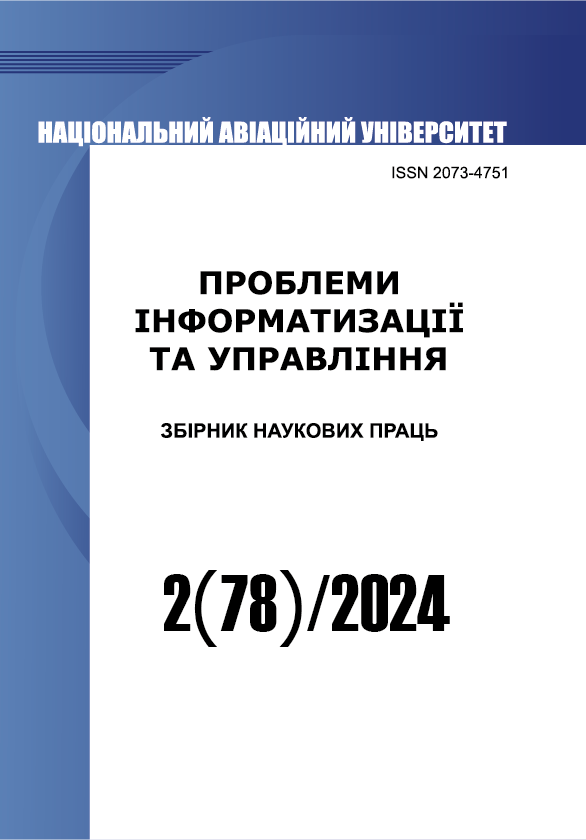A model for identifying the source of pseudorandom number sequences based on a hybrid neural network
DOI:
https://doi.org/10.18372/2073-4751.78.18965Keywords:
random number generators, source identification, hybrid neural network, recurrent neural networks, convolutional neural networks, cryptography, machine learning, classification, data securityAbstract
This article presents a model for identifying random number sources based on a hybrid neural network. The proposed model combines recurrent (RNN) and convolutional (CNN) neural networks to achieve high classification accuracy. The study discusses the key stages of model development, including data preparation, model construction, training, and performance evaluation. Experimental results confirm that the model can effectively identify random number sources with an accuracy of more than 95% for some generators. The developed approach provides high reliability and can be applied in various fields, including cryptography and modeling.
References
Pasqualini L., Parton M. Pseudo random number generation: A reinforcement learning approach. Procedia Computer Science. 2020. Vol. 170. P. 1122–1127. DOI: 10.1016/j.procs.2020.03.057.
Hochreiter S., Schmidhuber J. Long short-term memory. Neural Computation. 1997. Vol. 9, iss. 8. P. 1735–1780. DOI: 10.1162/neco.1997.9.8.1735.
LeCun Y., Bengio Y. Convolutional networks for images, speech, and time series. Handbook of Brain Theory and Neural Networks / ed. by M. A. Arbib. Cambridge, MA, 1998. P. 255–258.
Park S. et al. Dynamical pseudo-random number generator using reinforcement learning. Applied Sciences. 2022. Vol. 12, iss. 7. 3377. DOI: 10.3390/app12073377.
Haylock B. et al. Multiplexed quantum random number generation. Quantum. 2019. Vol. 3. P. 141. DOI: 10.22331/q-2019-04-26-141.
Amigo G. et al. Forecasting Pseudo Random Numbers Using Deep Learning. 2021 15th International Conference on Signal Processing and Communication Systems (ICSPCS) : proceedings, Sydney, Australia, 13–15 December, 2021 / IEEE. 2021. P. 1–7. DOI: 10.1109/ICSPCS53099.2021.9660301.
Proskurin D., Gnatyuk S., Okhrimenko T. Predicting Pseudo-Random and Quantum Random Number Sequences using Hybrid Deep Learning Models. Modern Machine Learning Technologies and Data Science Workshop (MoMLeT&DS 2023) : proceedings, Lviv, Ukraine, June 3, 2023 / 2023. P. 77–88. URL: https://ceur-ws.org/Vol-3426/paper7.pdf.
Li C. et al. Deep Learning-Based Security Verification for a Random Number Generator Using White Chaos. Entropy. 2020. Vol. 22, iss. 10. 1134. DOI: 10.3390/e22101134
Akhshani A. et al. Pseudo random number generator based on quantum chaotic map. Communications in Nonlinear Science and Numerical Simulation. 2014. Vol. 19, iss. 1. P. 101–111.
Wang Y. et al. A pseudorandom number generator based on piecewise logistic map. Nonlinear Dynamics. 2016. Vol. 83. P. 2373–2391.
Merah L. et al. A pseudo random number generator based on the chaotic system of Chua's circuit. Applied Mathematical Sciences. 2013. Vol. 7, iss. 55. P. 2719–2734.
Downloads
Published
How to Cite
Issue
Section
License
Автори, які публікуються у цьому журналі, погоджуються з наступними умовами:- Автори залишають за собою право на авторство своєї роботи та передають журналу право першої публікації цієї роботи на умовах ліцензії Creative Commons Attribution License, котра дозволяє іншим особам вільно розповсюджувати опубліковану роботу з обов'язковим посиланням на авторів оригінальної роботи та першу публікацію роботи у цьому журналі.
- Автори мають право укладати самостійні додаткові угоди щодо неексклюзивного розповсюдження роботи у тому вигляді, в якому вона була опублікована цим журналом (наприклад, розміщувати роботу в електронному сховищі установи або публікувати у складі монографії), за умови збереження посилання на першу публікацію роботи у цьому журналі.
- Політика журналу дозволяє і заохочує розміщення авторами в мережі Інтернет (наприклад, у сховищах установ або на особистих веб-сайтах) рукопису роботи, як до подання цього рукопису до редакції, так і під час його редакційного опрацювання, оскільки це сприяє виникненню продуктивної наукової дискусії та позитивно позначається на оперативності та динаміці цитування опублікованої роботи (див. The Effect of Open Access).

